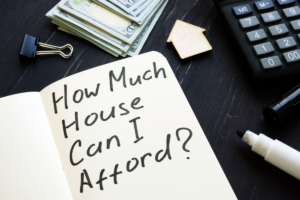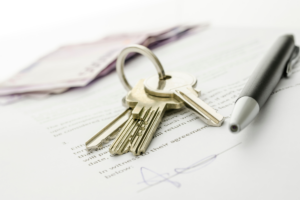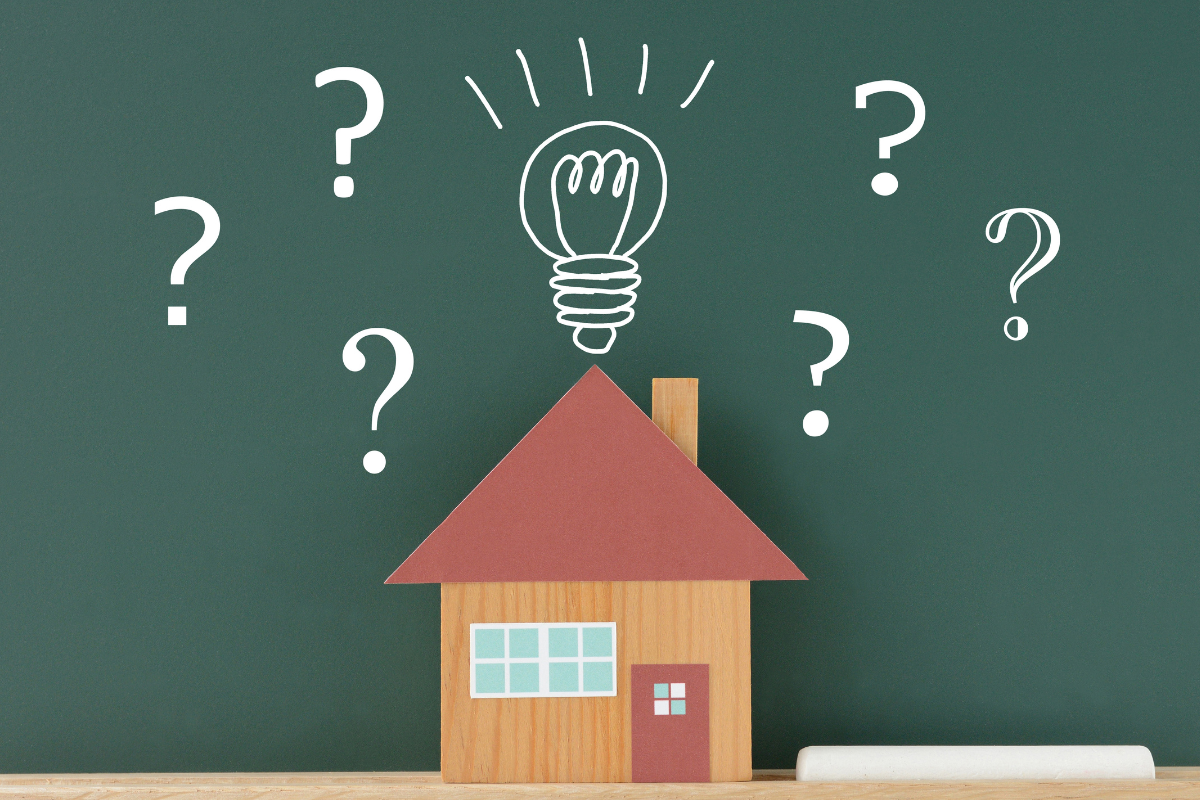4 Questions To Ask Before You Buy A Home in Canada
4 Questions To Ask Before You Buy A Home in Canada
So, you’re thinking about buying a home in Canada. Whether it’s your first home or you’re upgrading to a larger space, there are many things to consider.
The right property will last for years and prove a wise investment, but buying a home that doesn’t suit your long-term needs could mean expensive repairs and financial losses.
Despite increasing interest rates and the aftermath of COVID-19, Global News reports that the Canadian housing market is turning a corner, making 2024 a good time to fulfil your property goals.
In this guide, we’ll explore four important questions to ask before buying a home so you can go into the process with confidence.
Let’s dive straight in.
Question 1: Which mortgage rates are available—and which will I likely get?
Unless you’re lucky enough to buy a property outright, you’ll probably need a mortgage. The good news is that there are plenty of mortgage types available, but eligibility depends on multiple factors.
The most popular mortgages in Canada are high-ratio, fixed-rate, and variable mortgages. However, some lenders offer a wider range of deals based on your circumstances. We work with a variety of lenders which traditional banks may not have access to, and at Prime Mortgage Works we’re able to secure the best rate for your mortgage. Learn more about the benefits of using a mortgage broker vs. a bank.
High Ratio Mortgages
High-ratio mortgages are ideal for people who don’t have a large down payment. Most mortgage providers in Canada ask for at least 20% of the property’s market value, but high-ratio mortgages—also known as insured mortgages—let you contribute a lower down payment.
Pros:
- Individuals living in high-cost areas can buy a home without saving large amounts for a down payment.
- Buying your first property is more accessible with high-ratio mortgages.
- Property owners can still build equity in their property over time.
Cons:
- While you can save money on your down payment, you’ll still need to contribute higher monthly repayments.
- Providers insist on mortgage insurance, which means paying premiums.
- Some lenders aren’t willing to offer high-ratio mortgages, so you might find them difficult to access.
Fixed-Rate Mortgages
Many buyers apply for a fixed-rate mortgage because the lender agrees to a set mortgage rate that remains the same throughout the loan’s duration. For example, if your initial agreement lasts for four years, you’ll make the same monthly payment.
Pros:
- You don’t need to worry about surprise interest rate increases.
- Fixed-rate mortgages are easy to budget as you know what you’ll pay monthly.
- Many people save money and can switch to different mortgages when the initial term ends.
Cons:
- Some fixed mortgages have higher interest rates because you’re paying for stability.
- If the Bank of Canada’s base interest rates decrease, you could miss out on savings.
- People with fixed-rate mortgages often find they come with stricter terms, making it challenging to repay them early.
Variable rate mortgages
These mortgages are dependent on the Bank of Canada’s interest rates. As they increase and decrease, your monthly payments will do the same. While variable-rate mortgages are easy to secure, they’re also notoriously volatile, and some prefer to avoid them.
Pros:
- Decreasing interest rates could lower your monthly payments.
- Variable mortgages are easier to secure than fixed-rate deals.
- Most also come with shorter terms.
Cons:
- If the base interest rates increase, your mortgage payments will do the same.
- The instability of fixed-rate mortgages can restrict your purchasing power.
- Some people find variable rate deals cause a lot of stress and uncertainty.
Which mortgage am I likely to get?
While there are many mortgages available, the type you’re likely to be accepted for depends on numerous factors, including:
- Credit History: Lenders want to make sure you’re a safe prospect, so they’ll perform a credit check to assess whether you have a history of responsible borrowing.
- Income: Applicants with stable incomes are more likely to receive a range of mortgage offers.
- Buying Status: Some providers favour current homeowners because they’ve already proven they’re reliable and can handle the monthly repayments.
- Your Preferences: Remember that your preferences also factor into the decision. Some people prefer fixed rates, while others might seek a less popular mortgage deal based on their current and future needs.
Want to quickly assess how much of a mortgage you’re likely to be approved for?
Use our online mortgage calculator for a quick financial snapshot.

Question 2: What can I afford to spend on a new home, and how will the long-term costs impact me?
Buying a property is a huge decision that will impact your finances in the long run. However, many buyers focus on the outright costs and forget ongoing expenses. Determining how much you can afford will help you save money and prevent going into debt.
What’s your property budget?
Your property budget depends on the size of your down payment and whether you have a stable income. Most lenders ask for a down payment of 20% of the property’s value, but contributing a larger amount means you could buy a more expensive home.
If you already have equity in a current property, this could contribute to your down payment, opening up more options.
Mortgage affordability
You might be able to secure a high mortgage, but is it a good idea? Lenders will review numerous factors before deciding whether to approve your mortgage application, including your monthly income, financial commitments, and stability.
Using a mortgage calculator can give you an idea of the amount you might be able to borrow and how much your monthly repayments will be.
Additional costs
Focusing solely on the cost of your property and mortgage payments can render you unprepared for any additional expenses. These fees include:
- Home Inspections: Up to $1000
- Deposits: Usually 5% of the property’s price
- Appraisals: Up to $500
- Legal Fees: Up to $2000
- Surveys: $1000 to $2000
- Land Transfer Tax
- Mortgage Insurance
- New Home Warranty
As you can see, the accumulated costs of the above can make a big dent in your budget, and failing to factor them in might lead to debt.
Ongoing expenses
Most mortgage providers ask applicants to secure home insurance, which protects them from damage. You’ll need to budget for your monthly premiums and make regular mortgage repayments.
Failing to meet your obligations could result in the mortgage company repossessing your property.
Question 3: Is the property a wise investment?
So, you saw a property, fell in love with it and made an offer—now it’s yours. Stepping into the front door should be a thrilling experience – but what if you’re met with mold, structural damage and faulty electrics?
Failing to perform due diligence before buying a new home could result in significant expenses and turn your new haven into an ongoing project. Sure, renovations can be fun—but only if you approach them with open eyes.
Here’s how to avoid any unexpected surprises.
Book a property inspection
Professional property inspectors will visit the property and assess it for minor and major issues. Whether it’s mold, roof leaks, or compromised structural integrity, you’ll receive a full report to help you decide whether the property is worth your investment.
It’s also beneficial to look at the property’s history and assess whether it experienced severe damage in the past. The current owners should be able to provide reports of previous inspections to help you make an informed decision.
Don’t jump straight in
When viewing a property, make sure you check it thoroughly. Noticing any odours or cracks might be a warning sign. You should also ask if you can review the electrics and assess for temperature alterations in each room.
Even minor problems could become significant expenses, so it’s good to know how much you’re willing to spend.
Assess the extent of renovations
If you will need to perform any repairs or renovations, it’s a good idea to call a professional for an evaluation. They can tell you how much various work will cost, giving you clarity on whether you can afford to purchase the property.
We recently dove into all of the considerations when buying a home in Victoria. Read our Ultimate Buyers First-Time Homebuyers Guide if you’re looking for a wealth of advice and knowledge.
Question 4: Are you ready for the property-buying process?

Unless you’re a first-time buyer and purchase a vacant property, the time between your offer being accepted and moving into the home can be weeks or months. On average, it takes 91 days – or 13 weeks – but this depends on the seller’s circumstances and your own.
Your mortgage broker will give you an idea of how long it will take, but buying a home can be stressful. Make sure you do the following things to make it a smooth process:
- Deal with the mortgage stuff first: Contact a specialist mortgage broker and get pre-approved. Doing this means you know how much you can afford and protect yourself from disappointment.
- Stay organized: Keep your paperwork in order and plan ahead of time to ensure a smooth process.
- Be realistic: Understand that the process can take time, and the seller also has to handle their move. Be prepared to wait and stay in touch with your realtor for updates.
- Reduce stress: Take steps to reduce stress, including enjoying your hobbies, packing things in advance, and avoiding constantly worrying about the move.
The bottom line
Buying a property should be an exciting process, and asking yourself the questions we listed ensures you go into it with your eyes open. Once you find your dream home and complete the moving process, you can settle in and turn it into a haven.
Prime Mortgage Works is fully committed to finding you the best deals. No matter what your personal circumstances are, we’ll work with you to secure a mortgage that aligns with your needs.
Please feel free to get started with your application today.


